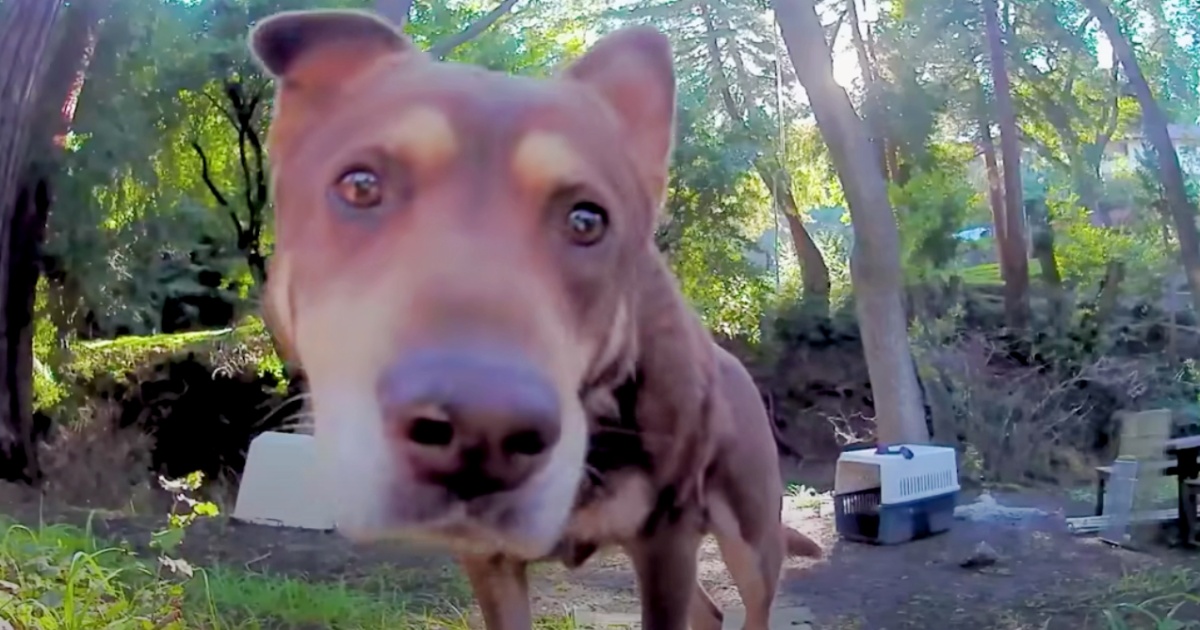If you have ever noticed your dog watching you closely while you add cinnamon to your oatmeal, you might wonder if it is safe for them. Cinnamon is known for its anti-inflammatory and antioxidant benefits for people. It can help regulate blood sugar and support general health. But is cinnamon safe for dogs?
Small amounts of ground cinnamon are usually not toxic to dogs. However, it is important to know the right forms, safe amounts, and possible risks before giving your dog anything with cinnamon. This helps keep your dog healthy.
There are 68 million households in the U.S. with dogs, and the ASPCA Animal Poison Control Center reports over 401,550 pet poisoning cases each year. Making informed choices is important.
Read on to learn the facts, expert advice, and practical tips for safely giving cinnamon to your dog. Your dog deserves the best care.
Can Dogs Eat Cinnamon?
Cinnamon are not toxic to dogs. You can safely add a small pinch of ground cinnamon to your dog’s food. Just make sure to avoid cinnamon sticks and essential oils. For most dogs, less than a teaspoon is safe and may even help with joint health and the immune system.
Cassia cinnamon, which comes from Indonesia and China, has more coumarin and can be hard on your dog’s liver if you use too much. Ceylon cinnamon from Sri Lanka is a safer choice. Stay away from cinnamon rolls or baked treats, since the sugar and sweeteners like xylitol are dangerous for dogs. If your dog is small, use even less—about a quarter teaspoon. It’s always best to check with your vet to find the right amount for your dog.
Many pet owners know that a small amount of cinnamon is safe for dogs. Recent studies suggest that cinnamon may also support your dog’s health in a few different ways.
Here are the scientifically-backed benefits of cinnamon for dogs:
1. Anti-Inflammatory and Joint Support
Cinnamon contains natural compounds that may help reduce swelling and support joint comfort. This can be helpful for older dogs or those with arthritis. Some research shows that cinnamon may help with pain and muscle relaxation. If your dog has stiff joints, a small amount of cinnamon might be worth considering.
2. Heart Health
Some studies have found that small amounts of cinnamon may help support healthy blood pressure and heart rate in dogs. This could be useful for dogs with heart concerns or high blood pressure.
3. Blood Sugar Balance
Cinnamon may help keep your dog’s blood sugar levels steady by supporting how the body uses insulin and slowing the absorption of sugar. For dogs with diabetes or those at risk, this could mean fewer spikes in blood sugar after eating. Always check with your vet before adding cinnamon to your dog’s diet.
4. Antioxidant and Brain Support
Cinnamon contains antioxidants that help protect your dog’s cells and support their immune system. These antioxidants may also help keep your dog’s brain healthy as they get older by supporting memory and focus.
5. Natural Germ Fighter
Cinnamon has properties that may help fight bacteria, viruses, and fungus. It can help protect your dog from certain harmful bacteria and may also help with yeast issues. A small amount of cinnamon might also help freshen your dog’s breath.
These benefits are linked to a compound in cinnamon called cinnamaldehyde. It is best to use Ceylon cinnamon, not Cassia, and only give a very small amount. Always check with your vet before adding anything new to your dog’s routine, especially if your dog has health issues.
Safe Dosage Guidelines: How Much is Too Much?
Determining a safe amount of cinnamon for your dog depends on their size. Most dogs can tolerate less than one teaspoon of ground cinnamon, but the appropriate amount varies. Always adjust the portion based on your dog’s weight.
For small dogs, offer only a light sprinkle of cinnamon. Medium and large dogs may tolerate slightly more. For dogs weighing 30 to 50 pounds, a pinch or two on occasion is generally safe. Cinnamon should be given as an occasional treat, not as a regular part of your dog’s diet.
Only offer cinnamon occasionally. Even small amounts given too frequently can cause health issues. Cinnamon, like any treat, should not exceed 10% of your dog’s daily caloric intake.
Understanding Cinnamon Toxicity in Dogs
Cinnamon is usually safe for dogs in small amounts, but too much can cause trouble. If a dog breathes in cinnamon powder, it can irritate the lungs and cause coughing. Eating a lot of cinnamon, especially Cassia cinnamon, can also put stress on the liver.
In 2024, the Pet Poison Helpline got more than 2,000 calls about cinnamon. This shows that even common spices can be dangerous if not used carefully.
The ASPCA recommends using Ceylon cinnamon because it has less coumarin than Cassia cinnamon. Avoid giving your dog baked goods like cinnamon rolls, since they often have sugar or xylitol, which are harmful to dogs.
If you want to give your dog cinnamon, use only a small pinch of Ceylon cinnamon in their food. Adjust the amount for your dog’s size, and check with your vet before adding any new spices.
4 Risks of Feeding Your Dogs Cinnamon
Feeding your dog cinnamon can pose certain risks, particularly if given in large amounts. The following points outline what to consider before offering cinnamon to your pet.
- Too much cinnamon is dangerous. If your dog eats a lot of ground cinnamon, it might start coughing, have trouble swallowing, throw up, or get an upset stomach. It can also slow down your dog’s heart rate and hurt its liver. According to the Pet Poison Helpline, even one teaspoon of cinnamon powder can be a problem for a medium-sized dog. Small dogs can get sick from even less.
- Cinnamon essential oils are especially risky. They have a chemical called cinnamaldehyde that is toxic to dogs. Even a little bit can upset your dog’s stomach, cause breathing problems, or irritate the skin. In bad cases, it can hurt the liver or nervous system. Keep all cinnamon oils away from your pets.
- Don’t mix up cinnamon and nutmeg. Cinnamon is not toxic to dogs, but nutmeg is. Nutmeg has a chemical called myristicin that can make dogs very sick. If your dog eats nutmeg, it could get confused, have tremors or seizures, or get a fast heartbeat and stomach problems. Even half a teaspoon can be dangerous for small dogs.
- Whole cinnamon sticks can pose a choking hazard. Dogs should not be given cinnamon bark or sticks to chew, as these can become lodged in the throat or cause intestinal blockages, potentially requiring emergency surgery. If adding cinnamon to a dog’s food, only a small amount of ground cinnamon should be used.
Recognizing the Warning Signs
It’s important to know what to look for if your dog eats cinnamon. The first signs you might notice are drooling, vomiting, or diarrhea. If your dog has gotten into cinnamon powder, keep an eye out for coughing, sneezing, or trouble breathing.
Other signs to watch for are tiredness, not wanting to eat, or acting differently than usual. If your dog seems extra restless or wound up after eating cinnamon, that can also be a sign they’ve had too much.
When should you call the vet?
Call your vet right away if your dog is having trouble breathing, keeps throwing up, or has eaten cinnamon essential oil or a lot of powder. It’s always better to be safe and get help quickly. Vets see these kinds of problems often and know how to help.
Safe Alternatives and Healthy Options of Cinnamon for Dogs
If you want to add flavor and health benefits to your dog’s meals without using too much cinnamon, there are several veterinarian-approved herbs and spices that can safely improve your dog’s diet. Research has identified more than 15 common spices that support digestion and immune health when used in appropriate amounts.
Here are the safest and most beneficial cinnamon alternatives for dogs:
- Turmeric contains curcumin, which helps reduce inflammation and may be even more effective than cinnamon. Most dogs can safely have about 1/8 to 1/4 teaspoon per 10 pounds of body weight each day. Turmeric also acts as an antioxidant, supports the immune system, and may help protect against certain diseases.
- Ginger is useful for dogs with upset stomachs or motion sickness. It contains compounds that help reduce nausea and inflammation. Studies indicate that about 1/4 teaspoon for a medium-sized dog can support digestion and joint comfort.
- Basil is rich in antioxidants and has properties that help fight viruses and bacteria. It may help reduce arthritis pain and ease anxiety in dogs. Up to 1 teaspoon of fresh or dried basil is generally considered safe and can support cellular health, vision, and insulin balance.
- Curly parsley is safe for dogs and can help freshen breath. It contains compounds that fight bacteria, support oral health, and may assist with urinary tract health. It is also a source of vitamins A, C, and K. Flat-leaf parsley should be avoided, as it is not safe for dogs.
- Rosemary contains antioxidants that help protect your dog’s health and may help repel fleas. Research suggests rosemary can support heart health and aid digestion. It can be used as an alternative to cinnamon in homemade dog treats.
- Oregano is high in antioxidants and helps fight bacteria. In small amounts, it can support your dog’s immune system and may be helpful during recovery from illness.
- Many commercial dog treats now include safe amounts of healthy spices. These products are formulated to meet safety standards and make it easier to provide your dog with beneficial ingredients.
Conclusion
A little ground cinnamon can be a safe and even healthy treat for your dog, as long as you use it in moderation. Stick with ground Ceylon cinnamon, since it has less coumarin. Avoid cinnamon sticks and essential oils, since they can be dangerous. Too much cinnamon powder can upset your dog’s stomach.
If your dog has health problems like liver issues or diabetes, talk to your vet before adding anything new to their food. The most important thing is to keep your dog safe. When you stay informed and careful, you can make sure any treat you give helps your dog stay happy and healthy.
FAQS.
Can dogs eat cinnamon?
Yes, dogs can have a small amount of ground cinnamon. Pick Ceylon cinnamon instead of Cassia. Give less than a teaspoon. Never use cinnamon essential oils.
Can dogs eat cinnamon rolls?
No, dogs should not eat cinnamon rolls. They have too much sugar and butter. Some also have xylitol, which is toxic to dogs. Too much sugar can upset your dog’s stomach.
Can dogs eat Cinnamon Toast Crunch?
No, dogs should not eat Cinnamon Toast Crunch. It has a lot of sugar, artificial flavors, and preservatives. These can upset your dog’s stomach. Give dog treats instead.
Can dogs eat cinnamon buns?
No, dogs should not eat cinnamon buns. They have too much sugar, butter, and yeast. Some also have raisins or chocolate chips, which are dangerous for dogs.
Can dogs eat cinnamon applesauce?
Only give your dog plain, sugar-free applesauce with a little cinnamon. Most store-bought applesauce has too much sugar and other additives. Make it at home to be safe.
Can my dog eat cinnamon?
Your dog can have a small amount of ground cinnamon once in a while. Use Ceylon cinnamon because it is safer. Do not give cinnamon sticks or essential oils. Ask your vet before giving new foods.
Can dogs eat cinnamon sticks?
No, dogs should not eat cinnamon sticks. They can cause choking or block the intestines. The hard sticks can also hurt your dog’s teeth and gums. Only use ground cinnamon powder.
People also ask:
Can dogs eat cinnamon graham crackers?
It’s best not to give dogs cinnamon graham crackers. These snacks have a lot of sugar, honey, and preservatives, which can upset your dog’s stomach. Instead, try offering treats made specifically for dogs.
Can dogs eat food with cinnamon?
Dogs can have a little food with a small sprinkle of cinnamon once in a while. Just make sure to avoid anything with sugar, chocolate, raisins, or xylitol, and always check the ingredients before sharing.
Can dogs eat oatmeal with cinnamon?
Plain oatmeal with just a pinch of cinnamon is safe for dogs every now and then. Stay away from flavored packets that have sugar or artificial sweeteners, and if you use cinnamon, Ceylon is the safer choice.
Can dogs eat cinnamon bread?
Cinnamon bread isn’t a good choice for dogs because it usually has a lot of sugar, butter, and yeast, which aren’t healthy for them. Some types also have raisins or nuts, which can be dangerous. It’s best to avoid giving bread to your dog.
Can dogs eat cinnamon oatmeal?
Plain oatmeal with just a little cinnamon can be fine for dogs once in a while. Try to avoid instant packets that have extra sugar, artificial flavors, or xylitol. Making a simple homemade version is usually the safest option.
Can dogs eat applesauce with cinnamon?
If you want to share applesauce with your dog, stick to plain, sugar-free applesauce with just a little cinnamon. Most store-bought kinds have too much sugar and other additives, so making your own without extra sweeteners is a better choice.
Can dogs eat cinnamon sugar?
Cinnamon sugar isn’t safe for dogs because the high sugar content can lead to digestive issues, weight gain, and dental problems. If you want to add flavor, use a tiny amount of plain ground cinnamon instead.
Can dogs eat cinnamon toast?
Cinnamon toast isn’t a good treat for dogs since it has butter, sugar, and a lot of cinnamon. The bread and toppings can upset your dog’s stomach and lead to weight gain. It’s better to stick with treats made for dogs.
Can dogs eat cinnamon and nutmeg?
Nutmeg should never be given to dogs because it contains a toxin called myristicin, which can cause serious health problems like seizures and heart issues. While small amounts of cinnamon are generally safer, it’s important to keep nutmeg away from your dog entirely.
Can dogs eat cinnamon cookies?
Cinnamon cookies aren’t safe for dogs because they usually have sugar, butter, flour, and sometimes chocolate chips or raisins, which can be harmful. It’s best to avoid giving any kind of human cookies to your dog.
Can dogs eat apple cinnamon oatmeal?
Plain oatmeal with some fresh apple and just a little cinnamon can be a safe treat for dogs once in a while. Try to avoid flavored packets that have sugar, artificial ingredients, or preservatives. Making a simple homemade version is the safest way to go.
Can dogs eat graham crackers with cinnamon?
Graham crackers, even with cinnamon, aren’t good for dogs because they have honey, sugar, and preservatives that can upset your dog’s stomach. It’s better to offer dog biscuits made for pets.
Can dog eat cinnamon roll?
Cinnamon rolls aren’t safe for dogs because they have a lot of sugar, butter, and yeast, and sometimes even raisins or chocolate, which can be very dangerous. It’s best to keep these treats away from your dog.
Can dogs eat cinnamon raisin bagels?
Cinnamon raisin bagels should never be given to dogs. Raisins are extremely toxic and can cause kidney failure, even in small amounts. The other ingredients in bagels aren’t healthy for dogs either.
Can dogs eat cinnamon powder?
Dogs can have a tiny pinch of ground cinnamon powder every so often. Ceylon cinnamon is a safer choice than Cassia. Be sure your dog doesn’t inhale the powder directly.
Can dogs eat cinnamon sticks raw?
Cinnamon sticks aren’t safe for dogs because they can be a choking hazard or cause blockages. They might also hurt your dog’s teeth and gums. If you want to use cinnamon, stick to a tiny amount of ground powder instead.



















 English (US) ·
English (US) ·